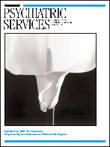Much has already been written in the popular press about Joan Didion's highly acclaimed and best-selling memoir, The Year of Magical Thinking . The book recounts the sudden death of her husband, writer John Gregory Dunne, after nearly 40 years of marriage. The severe medical illnesses of her daughter, Quintana, who succumbed to their relentless reoccurrences following the publication of Ms. Didion's memoir, looms in the background as an utterly unfair second blow. But the painful and bewildering process of mourning her husband's death takes center stage.
Ms. Didion describes the ordinary experience of grieving in an extraordinary way. Her magical thinking is the same phenomenon that we mental health professionals are familiar with from our studies of the human mind: the denial of death, the tenuous grasp of utterly unacceptable realities, the fantasies of how events might have been altered and reversed, the repetitive and dissociated process of reminding ourselves that the facts are the facts, the blur of events and people, and the painful and maddening process of accepting that a person who has died can never answer us. Ms. Didion vividly captures every one of these facets of mourning in excruciating detail.
The author is a researcher of her own experience. She fastidiously searches out the facts of the illnesses that strike her loved ones, the potential treatments, and her own coping processes. Ms. Didion finds the literature on grieving, both popular and professional, "remarkably sparse" and notes that only the occasional novel or poem that deals with mourning provides her some transient comfort. She finds how-to guides about grieving mostly useless. She then turns to the professional literature and reviews the writing and studies of psychiatrists, psychologists, and social workers. Ms. Didion states that from this body of work she learned many things that she already knew.
Ms. Didion learns that grieving spouses are at increased risk of dying, so she begins carrying identification "in case it happened to me." She pokes fun at our concepts of growth-enhancing, uncomplicated grief and pathological bereavement. She then directs irrational anger toward Vamik Volkan and his "regrief therapy" for "established pathological mourners." Eventually, she decides that Emily Post's 1922 book of etiquette is as useful as anything else she's come across.
Perhaps Ms. Didion undervalues our profession's efforts to describe mourning and assist those who are struggling with it. Or maybe, no matter how hard we try, nothing we can say will ever have the power of the mourner's own experience.

